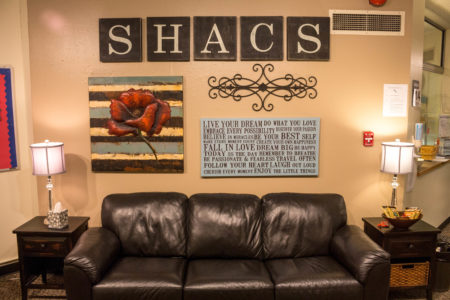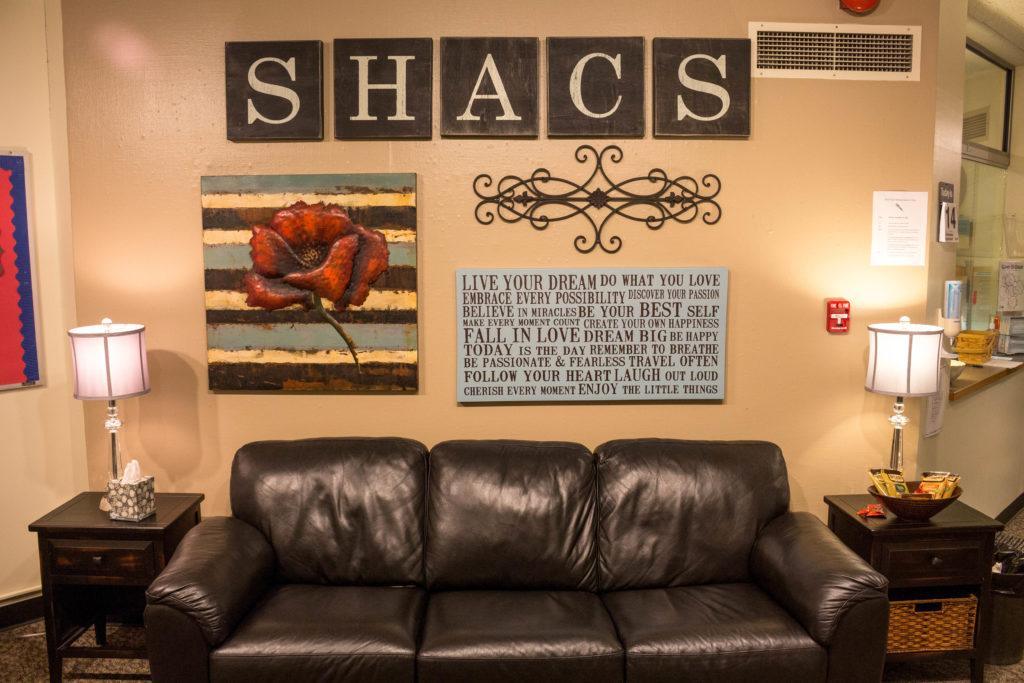
By Megan Tcheng
tchengme@grinnell.edu
Grinnell College’s Student Health and Counseling Services (SHACS) hosted a suicide prevention training course for a group of 30 students, professors and faculty members this past Tuesday, Sept. 13. Beth Gallegos, Mental Health Therapist and Assistant Director of SHACS, led the workshop. At the end of the session, attendees were provided with a certificate of completion.
During the one hour session, attendees were trained in the Question, Persuade, Refer (QPR) approach to suicide prevention. Described as a universal method of intervention, QPR offers three steps for detecting and providing support to any individual entertaining suicidal thoughts or experiencing emotional distress.
As outlined in the training, QPR can be expressed by first questioning a person about suicide, then persuading the individual to get help and finally by referring the individual to an appropriate resource. Together, these steps are designed to offer hope to the affected individual through provided support and positive action.
The QPR workshop represents an extension of SHACS’s growing effort to increase outreach and community involvement within the student body, which has focused on the treatment of mental health on campus. Trailing National Suicide Prevention Week, which took place just last week (from Sept. 5 to Sept. 11), the QPR training course aims to build on student activism and encourage increased awareness on campus.
“Our goal is to open up that conversation … and continue to build on [mental health awareness] here at Grinnell. We hope to be able to inform students and provide education regarding suicide prevention resources here on campus,” Gallegos said.
While the event on Tuesday marked SHACS’s first open-enrollment QPR workshop of the semester, additional training sessions have been held with a range of student groups on campus. Such groups include Community Advisors, Resident Life Coordinators, Community Advisor Mentors and Student Athlete Mentors. SHACS also offers additional suicide prevention workshops, which can be hosted in conjunction with student groups on campus.
While QPR training sessions have been offered at Grinnell in the past, the increased availability of suicide prevention workshops during the current fall semester is largely due to SHACS’s recent increased staffing and improved mental health resources.
Reflecting on SHACS’s continual effort to improve their services, Deb Shill, Director of SHACS Operations, commented on the program’s newest developments.
“Access to mental health care on campus is steadily improving. We are currently expanding our services through our collaboration with the University of Iowa doctoral program. We have also increased providers, which means increased availability for students. Already, we are definitely seeing students reaching out for and utilizing those resources,” Shill said.
Such changes, which were outlined in a recent campus memo compiled by Associate Vice President for Student Affairs Andrea Conner and Shill, include an extended team of seven full-time and part-time counselors.
A portion of these counselors will stem from a recently established collaboration with the University of Iowa. Shill explained the development of SHACS’s partnership with the University of Iowa Doctoral Program.
“We are really excited about the University of Iowa doctoral program. It is going to bring a great, additional aspect to our services here, through the incorporation of younger professionals onto our campus,” Shill said.
Currently, four members of the University of Iowa Doctoral Program hold part-time positions at SHACS. These representatives include Charles Bermingham, PhD., the newly named Doctoral Program Director at SHACS; Erin Cannella, MEd, a doctoral graduate assistant from the University of Iowa; and Alexander Rice and Soeun Park, both doctoral practicum from the University of Iowa.
Such growing developments in the mental health services provided by SHACS will help to meet the demands voiced by students in the past calling for additional doctors.
“We’re very excited about the direction that we’re going in terms of growth and being able to meet the needs of students,” Gallegos said.





























































